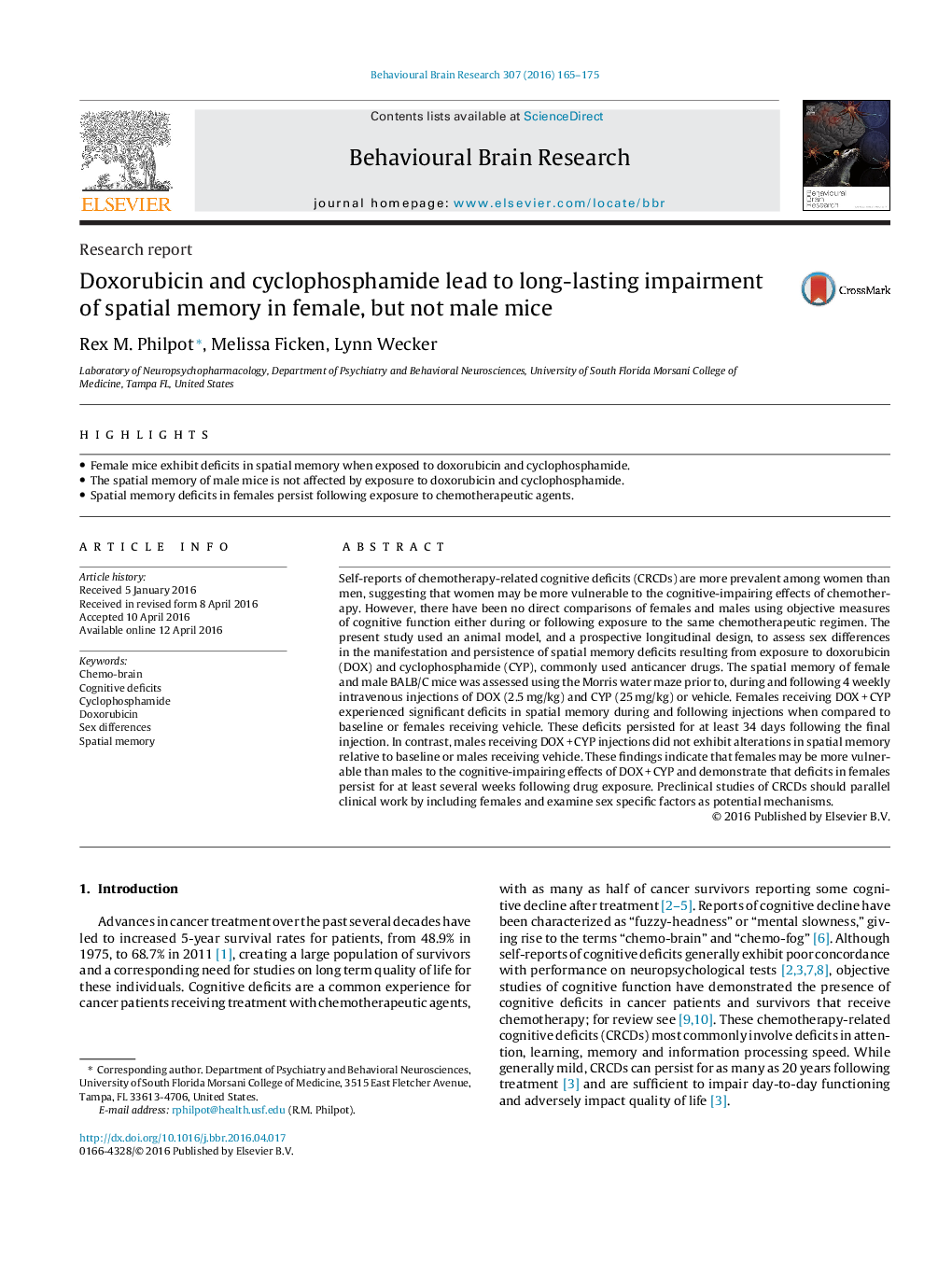| Article ID | Journal | Published Year | Pages | File Type |
|---|---|---|---|---|
| 4312265 | Behavioural Brain Research | 2016 | 11 Pages |
•Female mice exhibit deficits in spatial memory when exposed to doxorubicin and cyclophosphamide.•The spatial memory of male mice is not affected by exposure to doxorubicin and cyclophosphamide.•Spatial memory deficits in females persist following exposure to chemotherapeutic agents.
Self-reports of chemotherapy-related cognitive deficits (CRCDs) are more prevalent among women than men, suggesting that women may be more vulnerable to the cognitive-impairing effects of chemotherapy. However, there have been no direct comparisons of females and males using objective measures of cognitive function either during or following exposure to the same chemotherapeutic regimen. The present study used an animal model, and a prospective longitudinal design, to assess sex differences in the manifestation and persistence of spatial memory deficits resulting from exposure to doxorubicin (DOX) and cyclophosphamide (CYP), commonly used anticancer drugs. The spatial memory of female and male BALB/C mice was assessed using the Morris water maze prior to, during and following 4 weekly intravenous injections of DOX (2.5 mg/kg) and CYP (25 mg/kg) or vehicle. Females receiving DOX + CYP experienced significant deficits in spatial memory during and following injections when compared to baseline or females receiving vehicle. These deficits persisted for at least 34 days following the final injection. In contrast, males receiving DOX + CYP injections did not exhibit alterations in spatial memory relative to baseline or males receiving vehicle. These findings indicate that females may be more vulnerable than males to the cognitive-impairing effects of DOX + CYP and demonstrate that deficits in females persist for at least several weeks following drug exposure. Preclinical studies of CRCDs should parallel clinical work by including females and examine sex specific factors as potential mechanisms.
